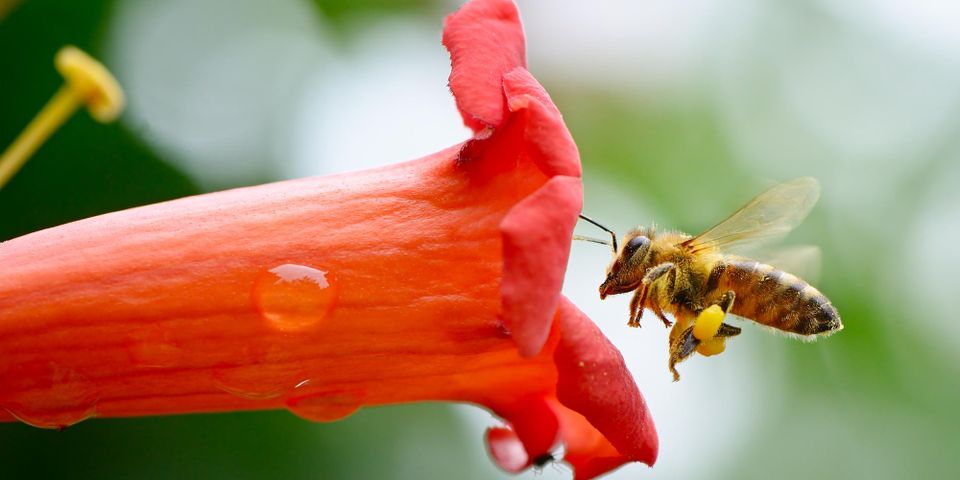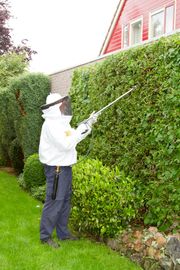
Stinging insects enjoy buzzing around during warm weather. If you spot a flying creature on your property, knowing what it is can help you describe the problem to a pest control expert. Bees, wasps, and hornets might look similar from an initial glance, but there are slight differences that can help you tell them apart.
What Do Bees Look Like?
Compared to wasps and hornets, bees have furry bodies. Their tiny hairs allow them to collect and spread pollen, making them essential to the environment as pollinators.
The most common types you can find in your garden are honeybees, carpenter bees, and bumblebees. Depending on their species, these insects can have yellow stripes or appear darker in color. They also have different sizes, but they usually aren’t longer than an inch.
In general, bees aren’t aggressive. If they feel threatened, however, they might sting you. If they do, their stinger will detach and they’ll die.
What Are Wasps?
 Unlike bees, wasps have narrow or pinched waists. The most common species are paper wasps and yellow jackets.
Unlike bees, wasps have narrow or pinched waists. The most common species are paper wasps and yellow jackets.
Both wasps and hornets have little to no hair on their bodies. Wasps are carnivorous and eat other insects, but they also enjoy plants and flowers.
They don’t lose their stingers or die after attacking. If you think there’s a wasp on your property, stay away, as the creatures are highly aggressive and will see you as a threat.
What Are Hornets?
Bald-faced hornets have white markings on their bluish-black bodies, while European hornets have reddish-brown stripes and markings. These two common species are larger than wasps.
Hornets build their nests on branches of trees and shrubs, but European hornets will also nest inside buildings, such as attics and chimneys. Like wasps, they readily sting potential threats.
If you’re unsure of which stinging insect you have on your property, turn to the pest control professionals at Pep Co. For over 30 years, they’ve provided pest removal and insect control services to residents throughout Kearney, NE. Whether you have bees, wasps, or hornets, they’ll help manage these insects to protect you and your family. Call (308) 236-6103 to schedule a pest control appointment, or learn more about the company online.
About the Business
Have a question? Ask the experts!
Send your question

